Abstract
OBJECTIVE: To evaluate a new work schedule at a Finnish steel mill with special attention to effects on older workers. The schedule was designed to improve sleep before the morning shift, and alertness during the morning shift, by delaying shift start and end times. METHODS: Evaluation was by a shiftwork health and safety questionnaire, recordings of work-rest-sleep cycles with activity monitors worn on the wrist, daily diaries, and on site computerised testing of fatigue and alertness by the NIOSH fatigue test battery. RESULTS: The one hour delay in shift starting times improved sleep before the morning shift, and improved waking fatigue, sleepiness, and performance during the morning shift. Evening and night shift sleep and fatigue or sleepiness, however, were affected negatively by the new work schedule, but the results for those shifts were less consistent across the various measures. Despite the improvements, most workers were not satisfied with the new schedule because of social concerns. Few interactions of age with the new work schedule were found, suggesting that the effects of the work schedule were uniform across age groups. CONCLUSION: A change of as little as one hour in shift starting times can improve morning shift sleep and alertness, but there are trade offs from these improvements in terms of night shift effects and social considerations. It seems, then, that optimal shift start and end times for an entire organisation are difficult to institute on a wide scale. Tailoring shift schedules to subgroups within an organisation is suggested.
Full text
PDF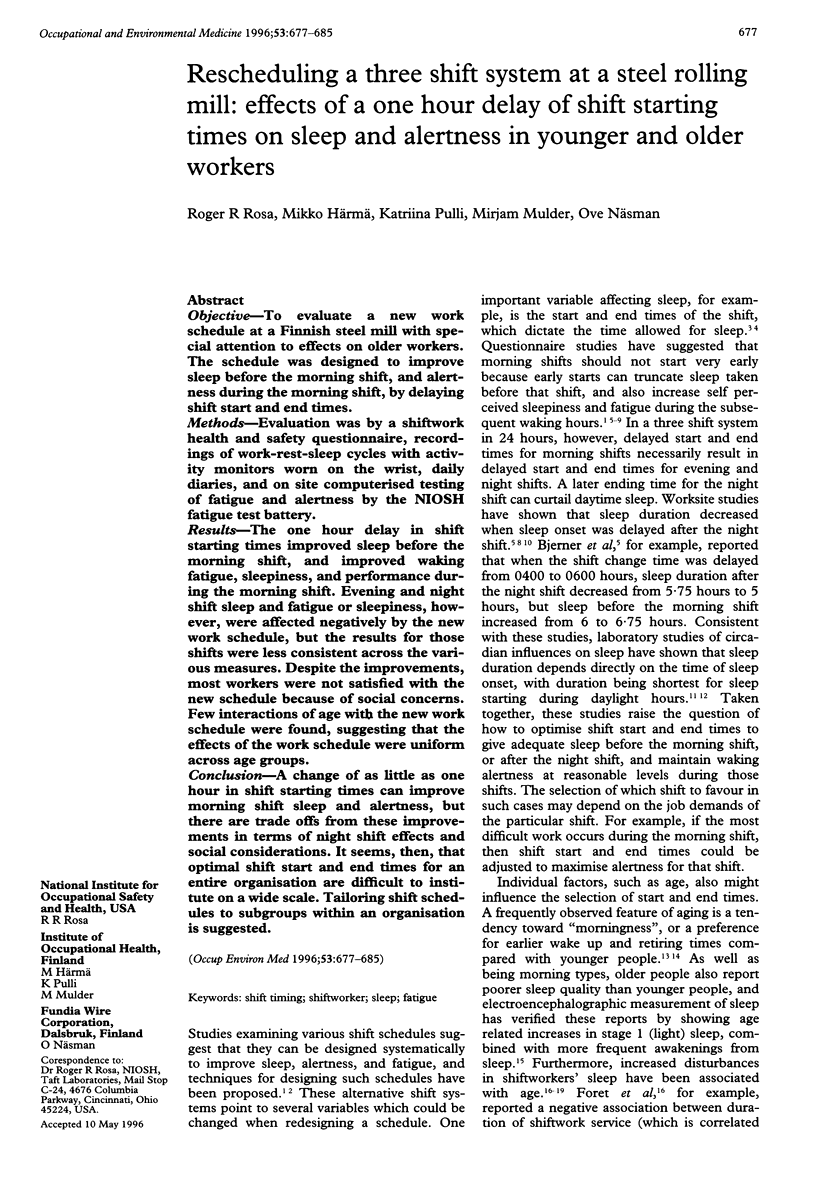
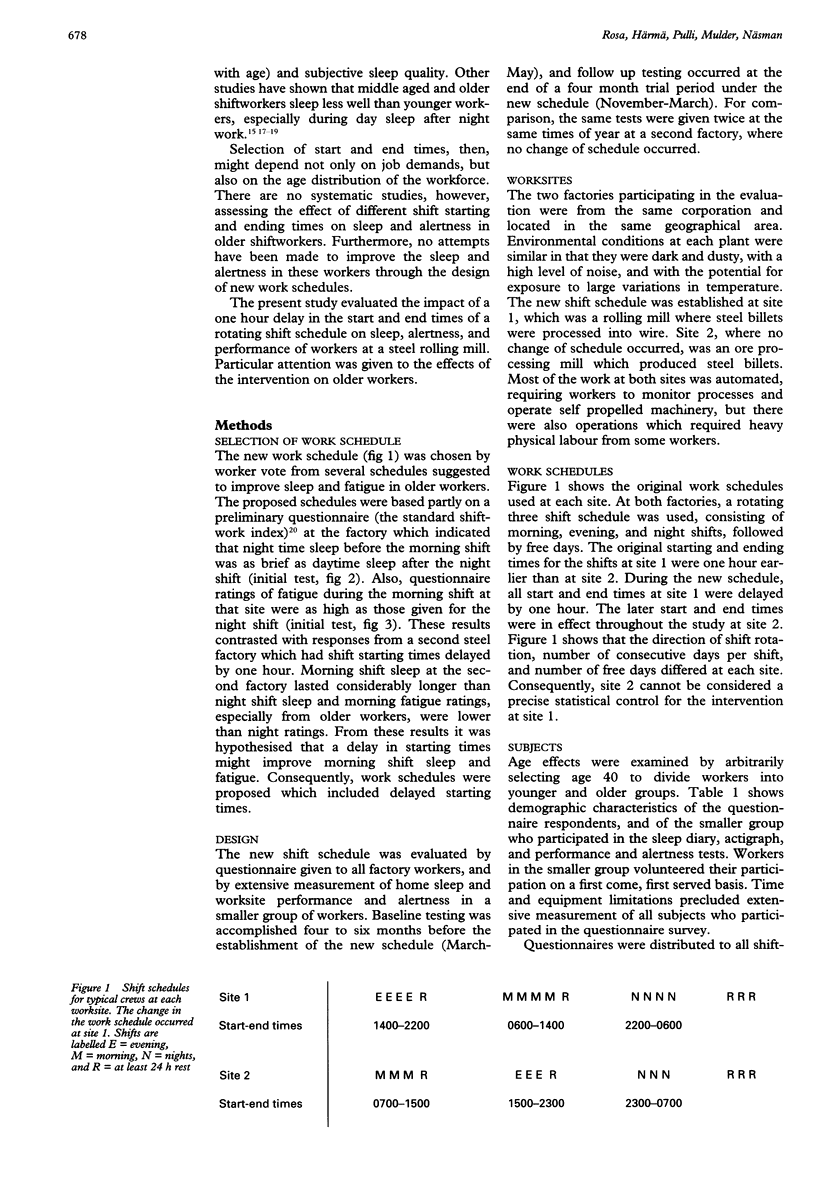
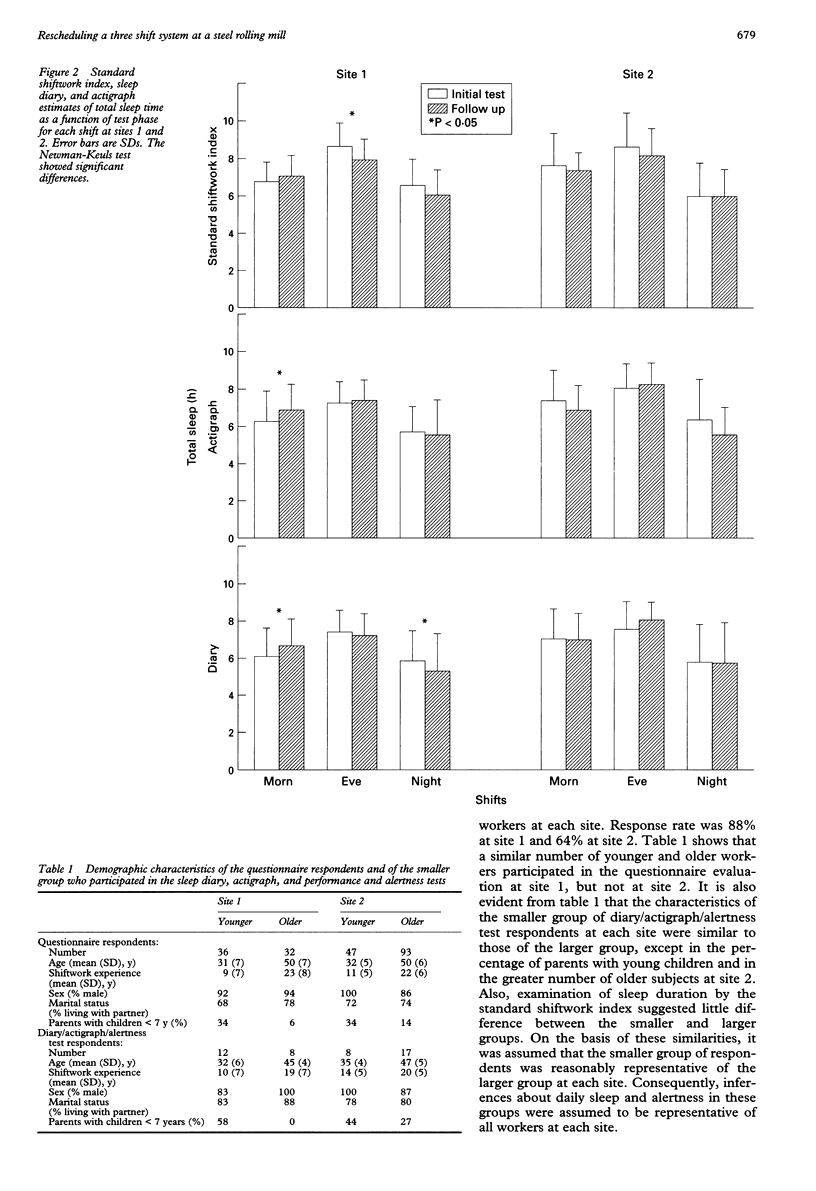
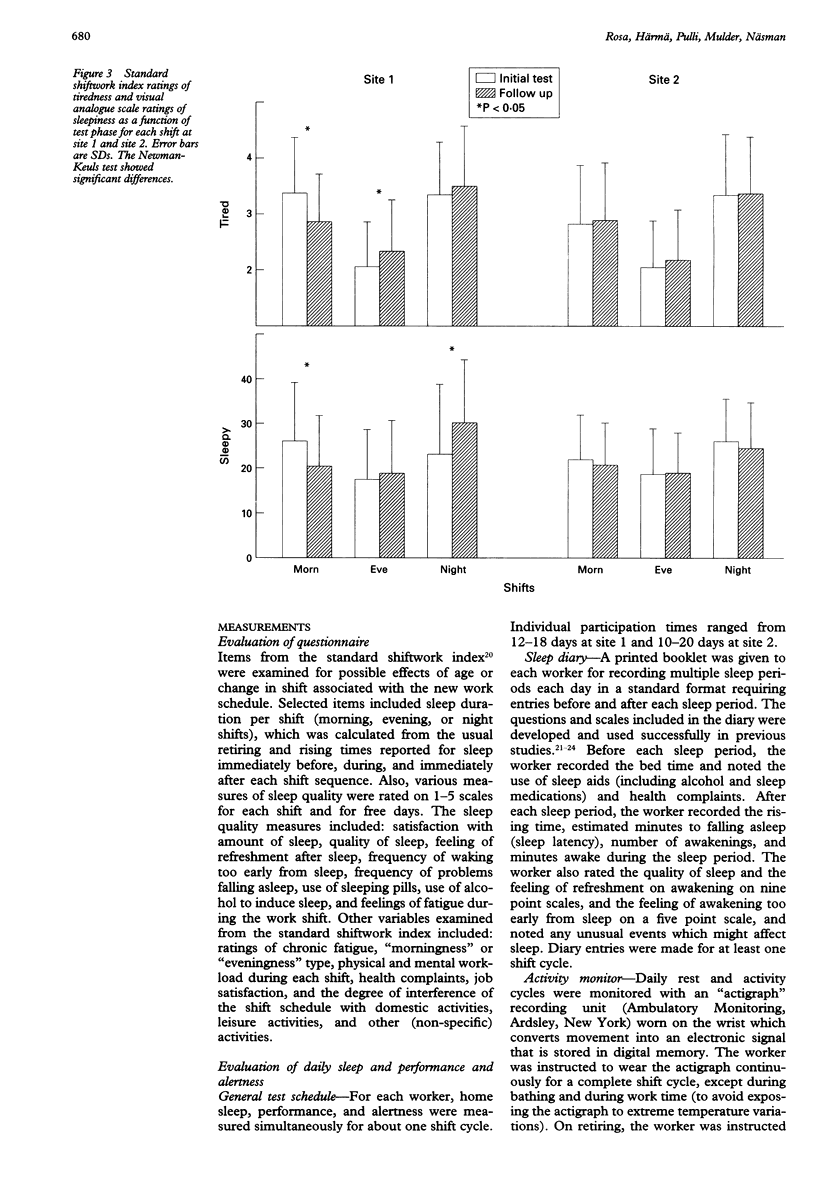
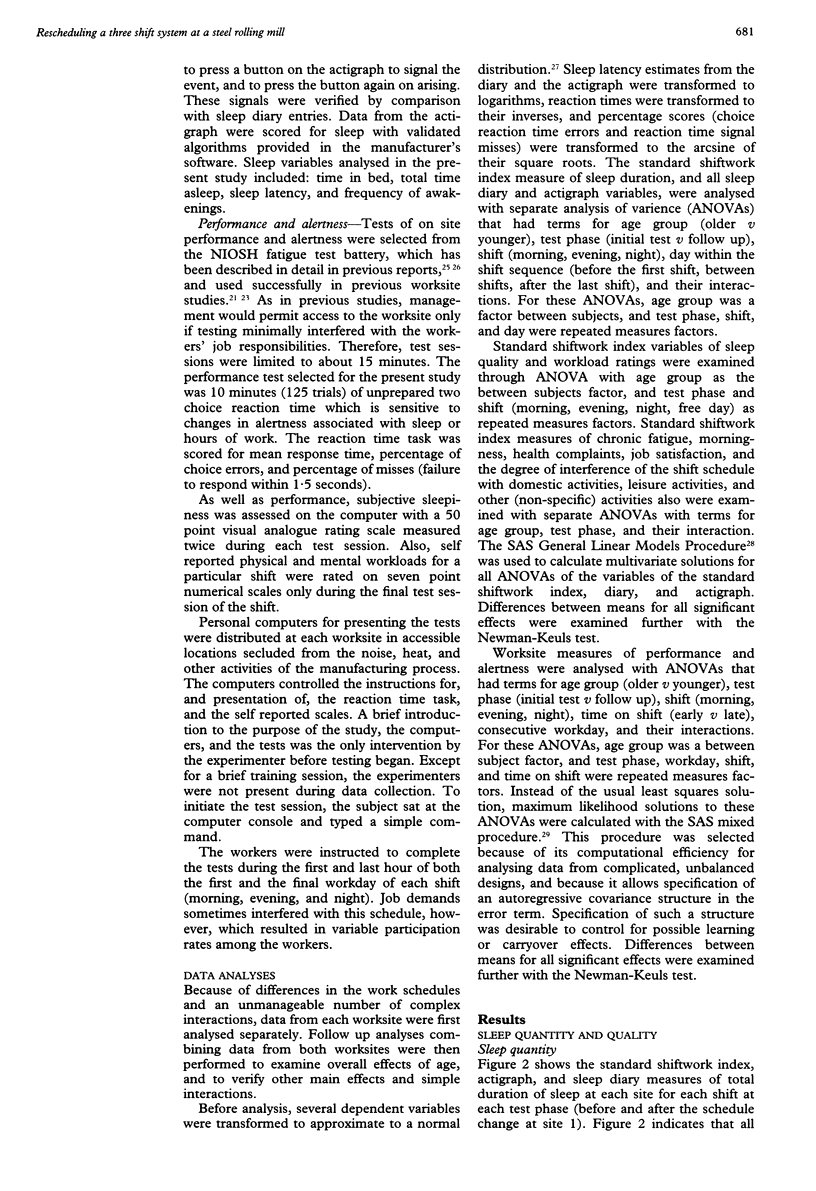
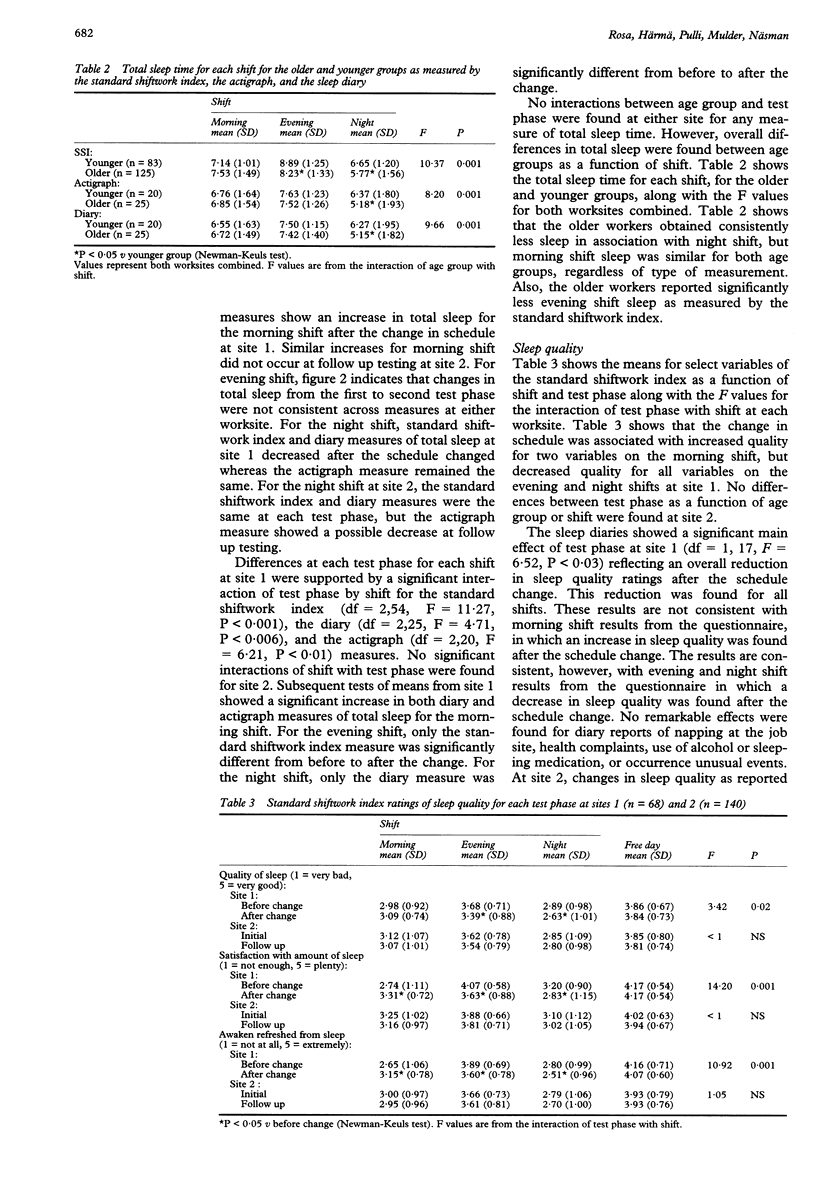
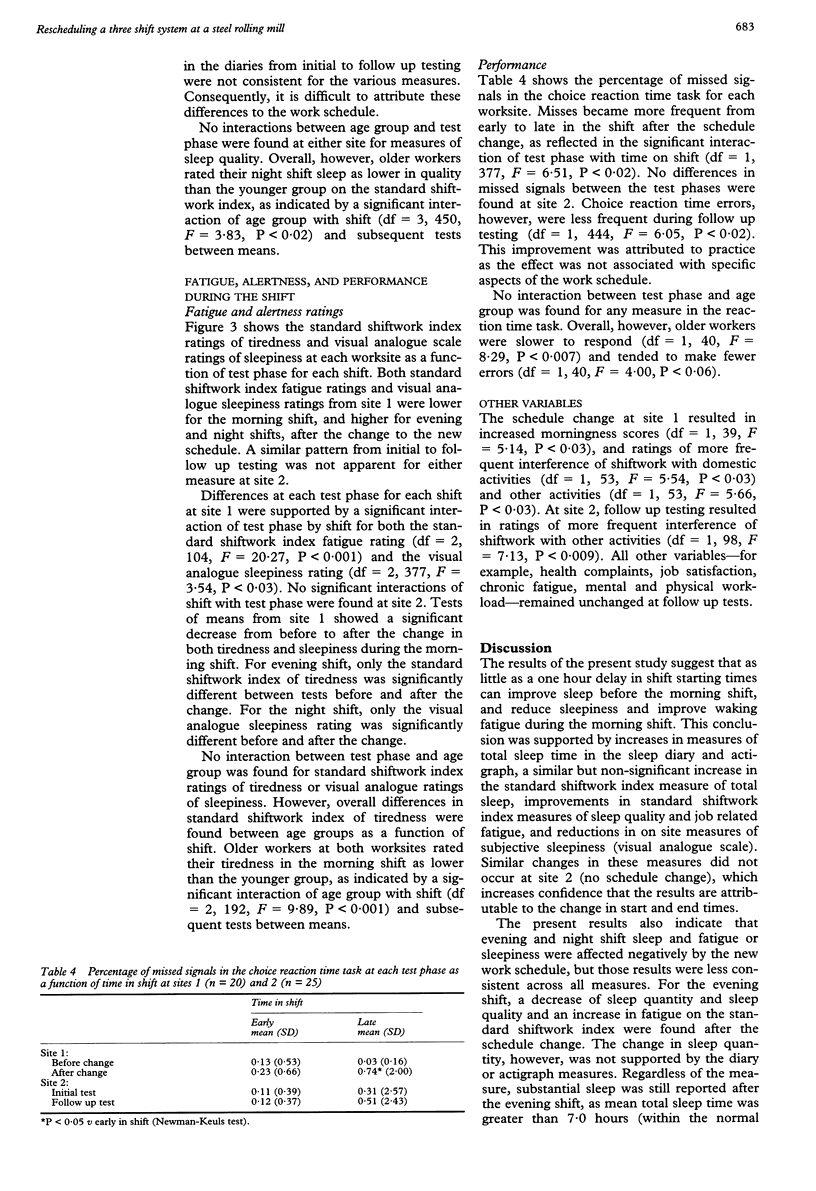
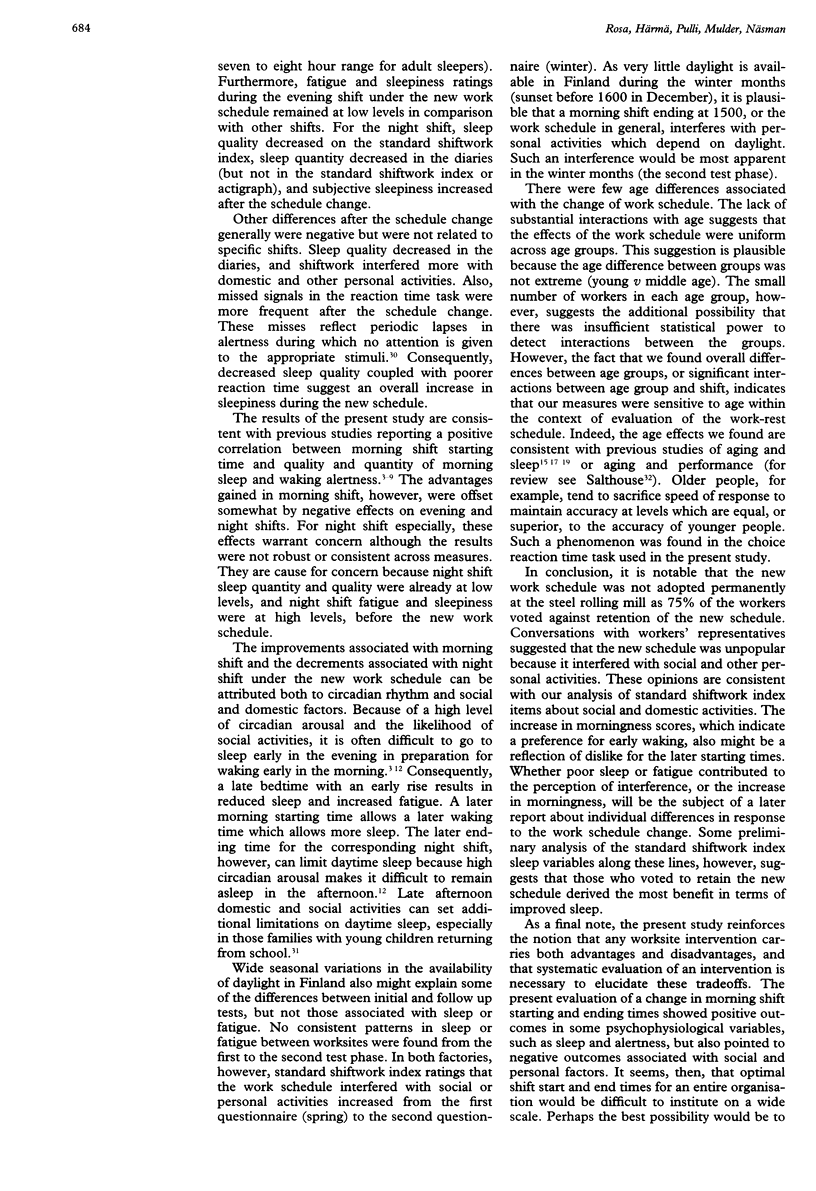
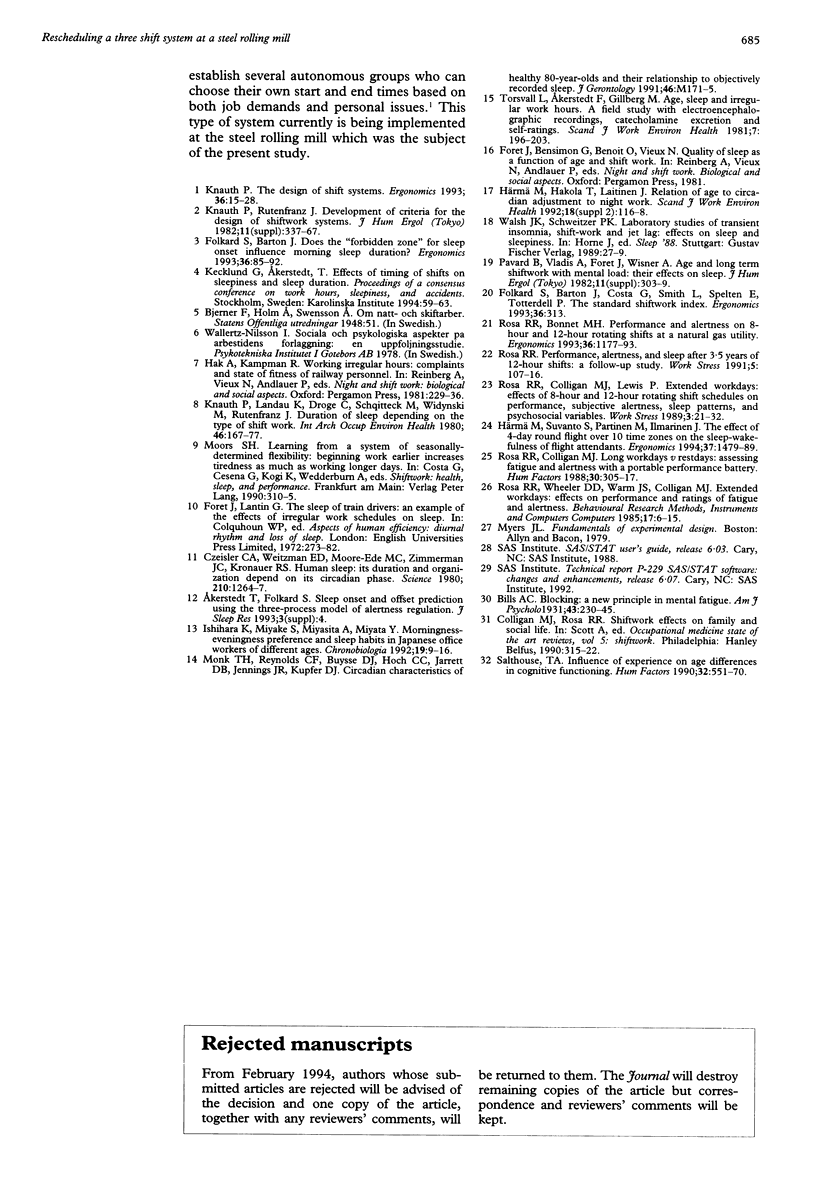
Selected References
These references are in PubMed. This may not be the complete list of references from this article.
- Colligan M. J., Rosa R. R. Shiftwork effects on social and family life. Occup Med. 1990 Apr-Jun;5(2):315–322. [PubMed] [Google Scholar]
- Czeisler C. A., Weitzman E. d., Moore-Ede M. C., Zimmerman J. C., Knauer R. S. Human sleep: its duration and organization depend on its circadian phase. Science. 1980 Dec 12;210(4475):1264–1267. doi: 10.1126/science.7434029. [DOI] [PubMed] [Google Scholar]
- Folkard S., Barton J. Does the 'forbidden zone' for sleep onset influence morning shift sleep duration? Ergonomics. 1993 Jan-Mar;36(1-3):85–91. doi: 10.1080/00140139308967858. [DOI] [PubMed] [Google Scholar]
- Härmä M. I., Hakola T., Laitinen J. Relation of age to circadian adjustment to night work. Scand J Work Environ Health. 1992;18 (Suppl 2):116–118. [PubMed] [Google Scholar]
- Härmä M., Laitinen J., Partinen M., Suvanto S. The effect of four-day round trip flights over 10 time zones on the circadian variation of salivary melatonin and cortisol in airline flight attendants. Ergonomics. 1994 Sep;37(9):1479–1489. doi: 10.1080/00140139408964927. [DOI] [PubMed] [Google Scholar]
- Ishihara K., Miyake S., Miyasita A., Miyata Y. Morningness-eveningness preference and sleep habits in Japanese office workers of different ages. Chronobiologia. 1992 Jan-Mar;19(1-2):9–16. [PubMed] [Google Scholar]
- Knauth P., Landau K., Dröge C., Schwitteck M., Widynski M., Rutenfranz J. Duration of sleep depending on the type of shift work. Int Arch Occup Environ Health. 1980;46(2):167–177. doi: 10.1007/BF00378195. [DOI] [PubMed] [Google Scholar]
- Knauth P., Rutenfranz J. Development of criteria for the design of shiftwork systems. J Hum Ergol (Tokyo) 1982;11 (Suppl):337–367. [PubMed] [Google Scholar]
- Knauth P. The design of shift systems. Ergonomics. 1993 Jan-Mar;36(1-3):15–28. doi: 10.1080/00140139308967850. [DOI] [PubMed] [Google Scholar]
- Monk T. H., Reynolds C. F., 3rd, Buysse D. J., Hoch C. C., Jarrett D. B., Jennings J. R., Kupfer D. J. Circadian characteristics of healthy 80-year-olds and their relationship to objectively recorded sleep. J Gerontol. 1991 Sep;46(5):M171–M175. doi: 10.1093/geronj/46.5.m171. [DOI] [PubMed] [Google Scholar]
- Pavard B., Vladis A., Foret J., Wisner A. Age and long term shiftwork with mental load: their effects on sleep. J Hum Ergol (Tokyo) 1982;11 (Suppl):303–309. [PubMed] [Google Scholar]
- Rosa R. R., Bonnet M. H. Performance and alertness on 8 h and 12 h rotating shifts at a natural gas utility. Ergonomics. 1993 Oct;36(10):1177–1193. doi: 10.1080/00140139308967987. [DOI] [PubMed] [Google Scholar]
- Rosa R. R., Colligan M. J. Long workdays versus restdays: assessing fatigue and alertness with a portable performance battery. Hum Factors. 1988 Jun;30(3):305–317. doi: 10.1177/001872088803000305. [DOI] [PubMed] [Google Scholar]
- Salthouse T. A. Influence of experience on age differences in cognitive functioning. Hum Factors. 1990 Oct;32(5):551–569. doi: 10.1177/001872089003200505. [DOI] [PubMed] [Google Scholar]


